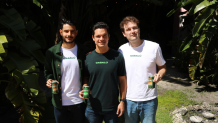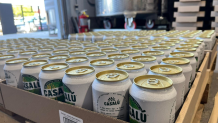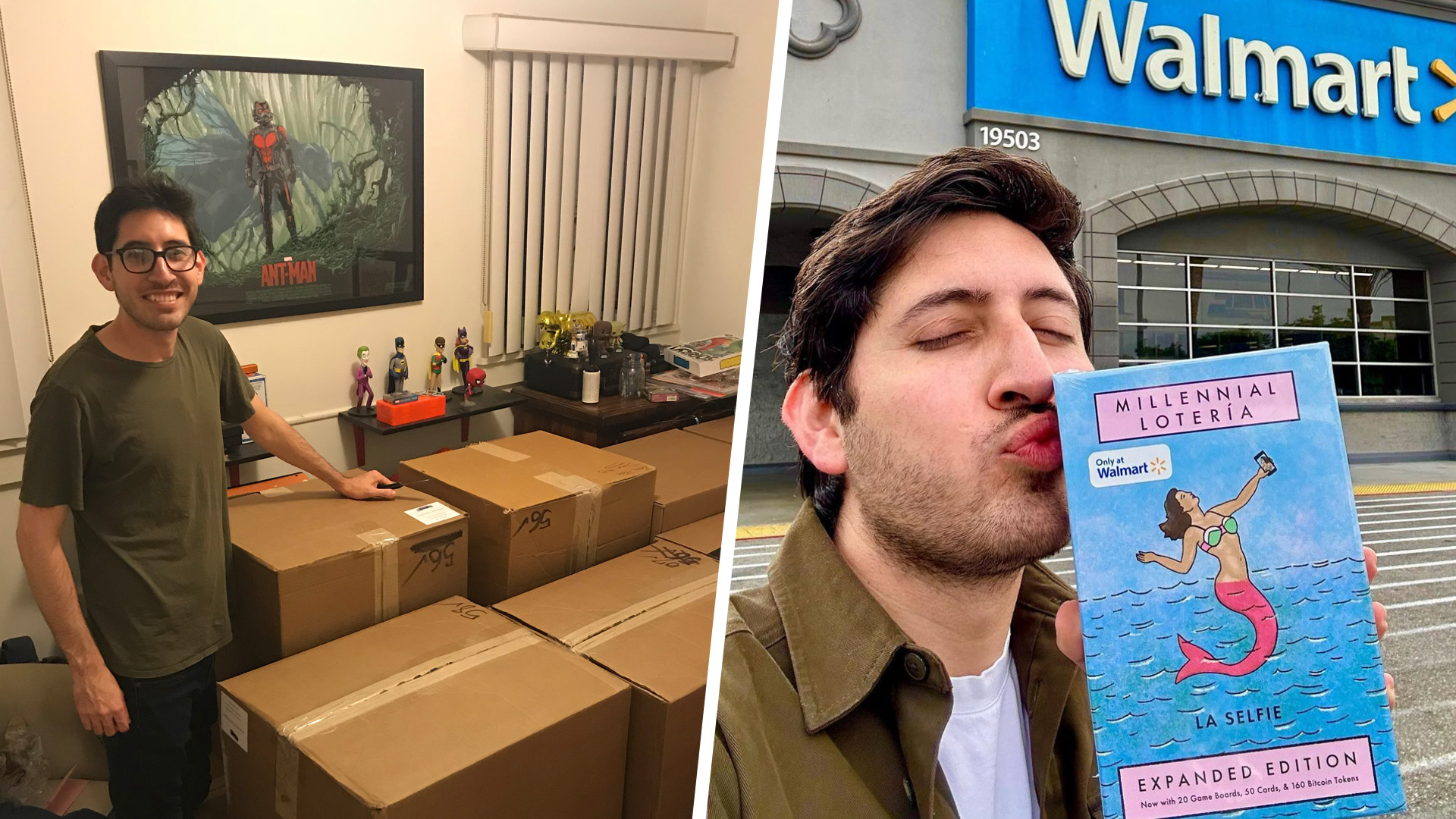Studying in the United States as a college student from South America can bring a number of culture shocks. For Gabriel González, Ricardo Sucre and Gustavo Darquea, the three founders of the rum-based hard seltzer Casalú, it was shocking the amount of beer and vodka Americans drank at college parties.
"So, that became a frustration for us — not having the ability to find what we had back home, which was cheap, available rum that was high quality that we could all enjoy," said González, who, like Sucre, grew up in Venezuela. Darquea grew up in Ecuador.
González, Sucre and Darquea met at North Carolina State University, where they attended undergrad as international students. They each graduated and managed to find ways to stay in the United States before Sucre first came up with the idea, which he called "Tropicalation."
The Hurricane season is on. Our meteorologists are ready. Sign up for the NBC 6 Weather newsletter to get the latest forecast in your inbox.
The idea came to Sucre as he drank High Noon, a vodka-based hard seltzer brand, while listening to Puerto Rican reggaetón star Bad Bunny by his apartment's pool during the pandemic.
"And I remember trying...High Noon, and there was a moment where I was like, this, this clicks, (but) there's something missing here," Sucre said. "I read that it was vodka soda. You look at the ingredients: vodka, sparkling water and juice. And I'm like, the drink that we grew up drinking after you kind of matured from the rum and coke is rum, sparkling water and lemon juice."
"And it was like, there's something here from a flavor standpoint," Sucre continued. "There's something here missing from a brand standpoint."
Following his epiphany, Sucre began creating his first iterations of his rum-based hard seltzer using simple ingredients and a SodaStream machine he bought at the store.

The first few tries at making the seltzer did not differ all that much from what Casalú is now, Sucre said. It was just a matter of getting the right amount of ingredients, like rum and lemon.
After a few months, when González, who worked for the NC State Entrepreneurship Clinic at the time, got involved, the drink was pretty good, Sucre said.
They then partnered with their third business partner, Darquea, who had an uncle with experience in the hard seltzer space, and pitched their idea to the NC State Startup Accelerator, an investment tool for current students and alumni up to five years removed from the university.
They competed against 60 companies and were one of five to receive the $5,000 investment, which they admitted was not very much to get started. But they used it to rent an Airbnb in Miami and get a keg to make more of their rum-based seltzer.
Now called Casalú, which comes from a fusion of casa (home) and salud (what people say when they toast in Spanish), the three burgeoning entrepreneurs headed to Miami — the city with the largest Latino population in the United States.
Not to mention, if Florida were its own country, it would be the sixth-largest consumer of rum in the world.
"We got a five-gallon keg. We did what we had to do to get customers to try our product and try what we were on to," Sucre said. "And I remember the strategy was pretty simple: Let's start crashing parties of friends and family members and anyone we know."
"We started to become the special guest at people's parties. Event managers from Miami and other bars found out and were like, 'Hey, we want that product,'" Sucre said.
Casalú continued to pick up steam in Miami, and they eventually were able to get their product in every Total Wine & More store in Florida.

Since then, Casalú has continued to grow. Thanks to González's connections through a professor at NC State, Casalú secured a $1.3 million investment from four members of the board at Caesars Entertainment, which also opened their product up to the Las Vegas market.
Now, Casalú has a team of eight people and is available in Florida and Nevada.
Looking ahead, the founders said they see the brand representing a new generation of Latinos that will go national and international in five years.
"We do see Casalú nationally rolled out, and definitely present in Latin America and in Spain, really overlapping. And then being able to say, 'Okay, this is what the younger generation drinks. What they enjoy,'" González said.
González and Sucre were interviewed for Bísness School, a series that tells the inspiring stories of Latino founders. Subscribe to Bísness School wherever you get your podcasts to get future episodes automatically. Remember, business school is expensive; Bísness School is free.



